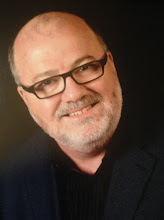Many Christian postures today reflect two
theologies that some call Calvinism or Armenianism. According to
Wikipedia, Calvinism is named after John Calvin, a French Reformation era
theologian and pastor who emphasized the sovereignty of God; who some would accuse
of minimizing the importance of man; while Armenianism is named after a Dutch
pastor, Jacobus Arminius from that same time period, who emphasized human
responsibility and has been accused of minimizing the importance of God’s
sovereignty.
Debates
have gone on for centuries as to which of these two men were - or are - right
and many have polarized into opposing camps and denominations. I do not
think we shall ever settle the matter in our lifetime.
However,
I believe we should try to embrace the truth from both of these theological
perspectives – and others - whenever we can. I know it seems
contradictory but the Biblical view of God and His ways is that of
paradoxes and opposites; e. g. He is one God and yet three…
Look
at some of Jesus’ teachings, like “those who humble themselves shall be
exalted” and those who lose will gain and those who gain will lose, or that we
must die to live, etcetera, etc.
What spiritual paradoxes He proclaimed! “In
the world you will have tribulations but be of good cheer…….” We could go on quoting Him some more but I
will not belabor the point.
On the natural side,
we know that God created electricity which involves polar opposites, being both
positive and negative at the same time. To be balanced in our thinking we
must keep things like this in mind.
I
live with this kind of reality every single day, having been married to my
polar opposite since the end of ’77. It seems that for two to become one in
marriage requires that both parties must die to self. This is a paradox
that can purify the selfish. (With me, this process is ongoing). Perhaps God’s purpose of opposing realities -
like electricity and marriage - is to shock the impurities out of our life as
we learn to embrace them all wholeheartedly even when we do not understand them
very well. The bottom line of my purpose
here is to appeal for balanced thinking so that we do not minimize important
things that may be equally true just to satisfy our western mindsets.
Water can be soft and yet it can also be hard. Recognizing this fact can prevent us pain while using it can bring us pleasure. Iced tea anyone?
A story is told of two men, one a hyper-Armenian and the other a hyper-Calvinist. They both walk across the same field – at different times - and they both step on the upturned teeth of a rake which flipped up and hit them in the nose.
Water can be soft and yet it can also be hard. Recognizing this fact can prevent us pain while using it can bring us pleasure. Iced tea anyone?
A story is told of two men, one a hyper-Armenian and the other a hyper-Calvinist. They both walk across the same field – at different times - and they both step on the upturned teeth of a rake which flipped up and hit them in the nose.
The Armenian yelled,
“Man I am an idiot, why couldn’t I see that? I am never going to do
that again.” Punishing himself is a norm because everything is his fault
unless he can find someone else to blame. Often this kind of thinking
can rob us of the joy of fully trusting God because it can place too much
responsibility on our shoulders and even lock us into shame.
Later the Calvinist walked across the same
field and stepped on the upturned teeth of the same rake and it flipped up and
hit him in the nose, he picked up the rake and said “Man I am sure glad
that part of my life is over!”
